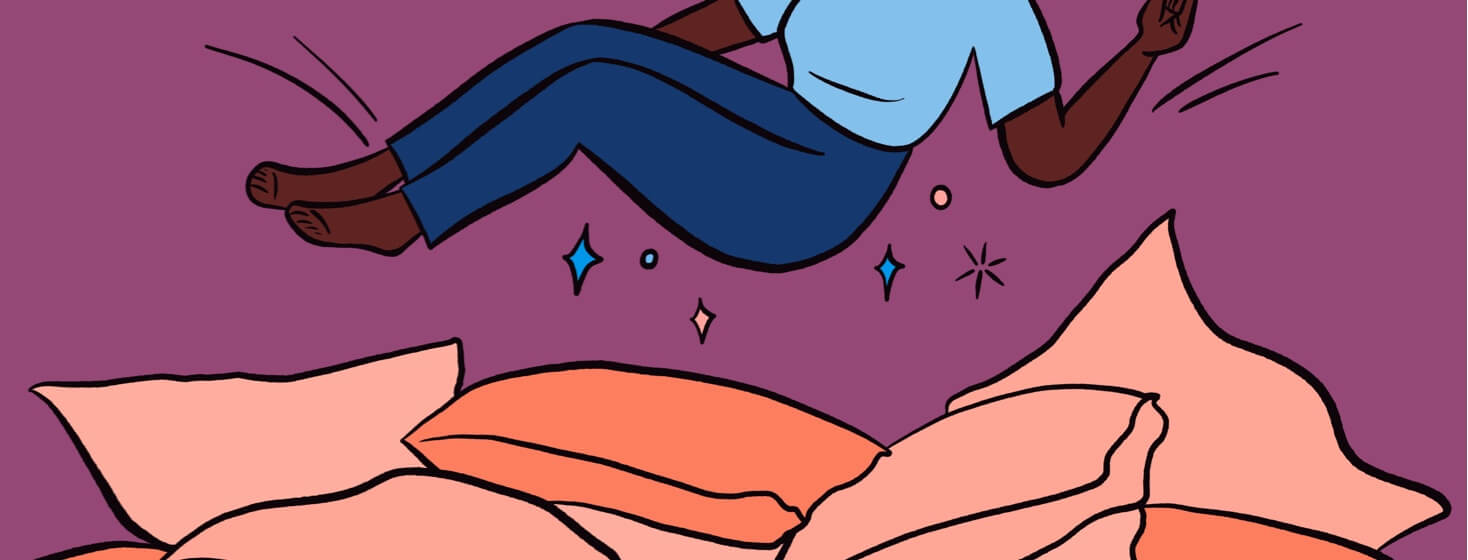Rest Versus Sleep
Sometimes I don’t sleep very well. Do you relate?! I think everybody goes through periods of disturbed sleep; but for some of us, chronic insomnia is debilitating, and can make rest all the more difficult.
Let's talk about rest versus sleep
Interrupted sleep that lasts just a few days or weeks is called short-term or acute insomnia. Chronic insomnia occurs more than 3 times a week for at least 3 months.
And what is that magic amount of sleep we’re all looking for?! On average, healthy sleep is about 7 hours but varies from individual to individual. Some people feel great with 6 hours, others need a solid 9 to 10 hours. So, defining insomnia is as much about personal assessment as it is about crunching numbers.
Managing fatigue and sleep deprivation
Whether your insomnia is acute or chronic, you are probably feeling exhausted. Occasionally people become hypomanic when sleep-deprived – with unusually high levels of energy and cheer, and feeling more talkative than usual. But for most of us, sleep deprivation leads to fatigue.
Hypomania can be indicative of other problems so it is extremely important to discuss it with your treating physician. Managing fatigue is a complex issue.
How to increase sleep when nothing works?
Sometimes all the best sleep hygiene practices in the world do not lead to an increase in sleep. We might turn to supplements or pharmaceutical support. Perhaps even cognitive behavior therapy for insomnia. But what do you do if nothing works? You’ve tried everything your friends and neighbors, pharmacists and doctors suggest. Still, you stare at the ceiling in frustration at 3:00 AM, begging the clock to tick faster.
I have no magical pixie dust to sprinkle on you. But I do suggest you rest – any time you can.
Rest versus sleep
Sleep and rest are 2 different things.
What our bodies are busy doing while we sleep
When we sleep, our body is normally at rest. During this rest time, lots of important bodily functions are happening. The cardiovascular and immune systems are regulated. Our brain stores new information, nerve cells communicate and reorganize, and toxic waste is expelled. All this brain activity contributes to healthy brain function and can explain why we might experience ‘brain fog’ when we’re fatigued.
Sleep also impacts hormone production. Melatonin is released to support that crucial sleep. Growth hormones assist bone and muscle development as well as metabolism. Cortisol, an integral part of the body’s stress system, is regulated. As are the appetite control hormones: leptin and ghrelin.
So, when we’re not getting enough sleep, all these bodily functions are negatively impacted. Anyone experiencing endless sleepless nights can attest to the cognitive impairment and constant craving for carbs to fuel an exhausted body.
When sleep feels like an impossibility, we need to prioritize rest. Whenever, wherever, and however we can.
How to help busy bodies get rest
Mindfulness
Mindfulness is the art of paying attention to the moment – taking the mind away from all that has happened and everything that might happen. Just paying attention to the sensations you can see, hear, smell and feel around you: the air temperature, the rise and fall of your chest as you breathe, the taste of your coffee, the distant sound of traffic.
Paying attention to the moment, for as long as you can, gives your mind a momentary rest from past and future worries. Mindfulness can be done anytime, anywhere: in the middle of a work meeting, sitting on the toilet, walking in the forest, watching television. Just being present in the moment and accepting it without judgment – neither good nor bad.
Meditation
Meditation is about tuning into something and trying to avoid interruptions. It might be a breath and relaxation meditation. You might listen to an app with soothing music or voices guiding you through a relaxation process. Meditation is often done with closed eyes and in a quiet space, to avoid distractions.
Some people find meditation leads to sleep but even if it does not, it is still a mental reprieve and your body has a chance to relax. Deep breathing can help oxygenate blood flow. It is a restful activity.
Time-outs
Time-outs are restful. If mindfulness and meditation aren’t your cup of tea, just taking time out from day-to-day activities is restful. Try getting curled up somewhere reading a book; stretching out on a couch watching television; snuggling up with a beloved pet; or getting off your feet for as long as you can to rest the body and the mind.
Relaxation
Relaxation exercises help. Just because you’re awake for too many hours of the day doesn’t mean every minute has to be filled with activity. Coordinating breathing with muscle relaxation exercises will rest your mind and body for a short period of time.
My magic pixie dust is rest
In a perfect world, we’d be getting our magical 7 hours of sleep 7 days a week. Unfortunately, we do not live in a perfect world. But choosing to sit and rest for half an hour or leaving the vacuuming or writing that report for another hour can have an enormous impact on physical and psychological wellbeing.
I used to find lying in bed wide awake to be enormously stress-inducing. Not only was I not getting any sleep, but I was also in a constant state of anxiety worrying about my lack of sleep.
Now I lie in bed and practice mindfulness, meditation, and relaxation exercises. I may not get more sleep, but I’m an awful lot happier.
What are some ideas that help you rest when sleep is difficult? Let us know what works, or doesn't.

Join the conversation